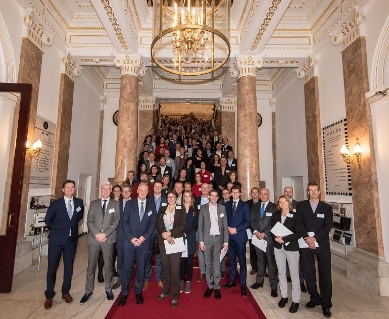
More effective data-driven policymaking
More collaboration, combining data and asking the right questions. These are a few of the recommendations that policymakers and researchers formulated at the conference 'Data gedreven Beleidsontwikkeling' on 28 November 2017.
The Leiden Centre of Data Science (LCDS) and ScienceWorks jointly organized the conference in The Hague. Policymakers, politicians and data researchers came together to exchange ideas on how data can be used more effectively in policymaking. Chairman Jaap van den Herik (director of LCDS), Machine Learning professor Holger Hoos, BOLD Cities director Liesbet van Zoonen and many other experts spoke at the conference.
Data is becoming increasingly important

Governments have more and more data at their disposal. This may lead to new insights about cities, provinces and society as a whole. 'We have many assumptions that can be proven wrong by making use of data’, says Carlien Roodink, board member of the Open State Foundation during the panel discussion. Yet, many governments are looking for ways to use data in a better and more structural manner.
More collaboration needed
How can policymakers make use of data? It starts with asking the right question, says one of the participants. However, a problem that is mentioned at the conference is that data analysts and policymakers often do not speak the same language. Policymakers lack knowledge of what is possible with data, while data analysts do not know what kinds of questions exist. Better collaboration, therefore, is important.
Privacy issues
Another challenge are the privacy issues, which often - rightly or wrongly - form an obstacle to the use, sharing and combining of data. Policymakers are often very cautious in that sense, says a participant of the panel discussion, and that may stand in the way of efficiency.
Combining datasets
Also, 'data silos' are a problem: many datasets from different government bodies are completely separate, while combining them may lead to new insights. At the conference, examples of new initiatives and collaborations are also mentioned. In the Urban Data Centers, for instance, municipalities (including that of The Hague) closely collaborate with Statistics Netherlands (CBS) to make better use of data about their cities.
Images: ScienceWorks
